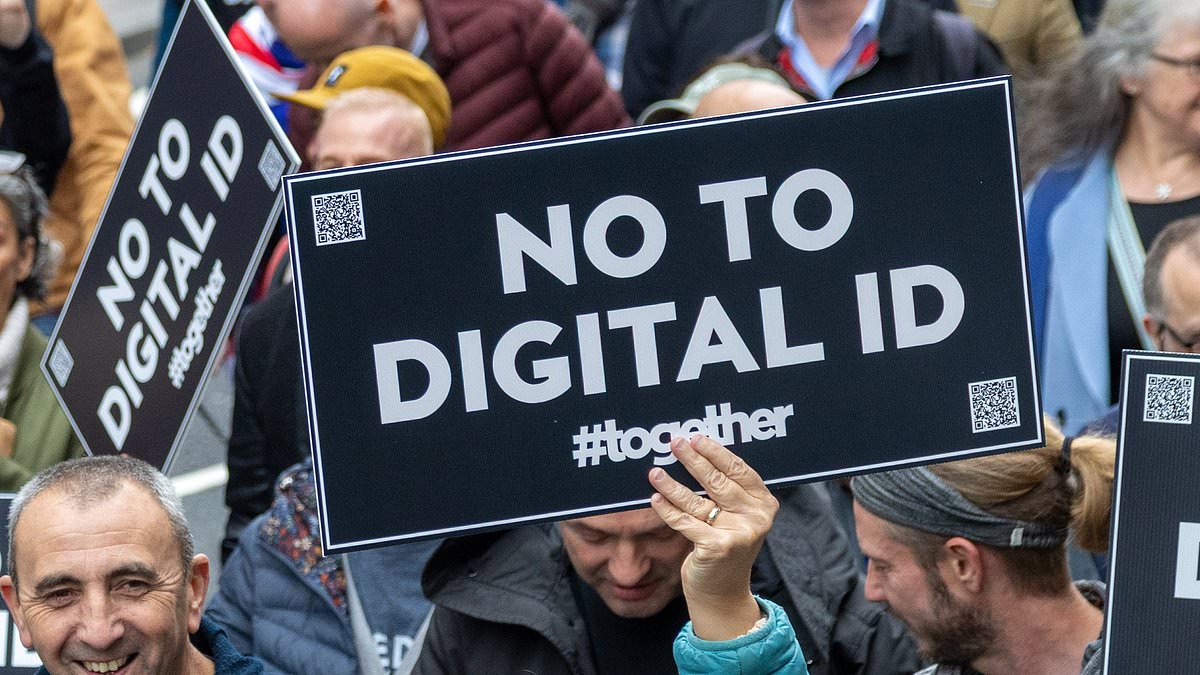Copyright dailymail

Labour has been accused of breaking its promises on digital IDs after it emerged that just months ago a minister guaranteed they would not be mandatory. Sir Chris Bryant - then a minister in the department responsible for the digital ID scheme - promised Britons would be able to use physical identification in 'every circumstance' in March. But last month Prime Minister Sir Keir Starmer announced that digital ID will be compulsory for anybody who wants to work in the UK from 2029. Earlier this year the Liberal Democrat's tabled an amendment to the Data (Use and Access) Bill that would have 'enshrined [the] right to non-digital identification' for those without access to the internet, for people with privacy concerns, or for those who 'might simply not want to' use digital ID. However Labour rejected the need for this as Sir Chris told a parliamentary committee that 'people will be able to use non-digital systems if they want to in every circumstance'. The then Department for Science, Innovation and Technology minister told MPs: 'There is a second flaw in the argument, which is that it seems to presume that people will be required to use a digital verification service. 'That is not true. People will be able to use non-digital systems if they want to in every circumstance. That is an essential part of being able to take forward digital verification services.' Lib Dem MP Steff Aquarone - who tabled the amendment - said he is 'deeply troubled that the Government have gone back on their word' and has written to ministers to demand answers. He told the Mail: 'Telling Parliament that "people will be able to use non-digital systems if they want to in every circumstance", and then breaking that pledge just a few months later, is incredibly serious. 'MPs deserve to know if the Government stand by that, and also if they still believe that their plans would break the Equality Act. We cannot accept another broken promise from this Government.' The Government will launch a public consultation on digital ID in the coming weeks and has promised to consider physical alternatives for people without smartphones, such as the elderly, as part of this. For students, pensioners or others not seeking work, having a digital ID will be optional. However they will be mandatory for everybody else who wants to work, with the Government hoping to roll the scheme out before the next election. They will initially be used to prove people's right to work, before being expanded to store other information, such as benefits data, to streamline access to public services and tackle fraud. Sir Chris was also asked to enshrine a right to not use digital ID for the elderly and disabled in the Bill, but he responded: 'The thing is, it is already enshrined in law under the Equality Act 2010.' Mr Aquarone and civil liberties groups have warned the Government's digital ID proposals could, therefore, breach the Equality Act and may be subject to legal challenges. Jasleen Chaggar, legal and policy officer at Big Brother Watch, said: 'Backtracking on the promise of being able to use non-digital methods to prove your identity is yet another feature of this undemocratic mandatory digital ID scheme.' He added: 'The government must abandon its ill-conceived plans for a mandatory digital ID and guarantee a legal right to non-digital forms of ID.' A Government spokesman said: 'Digital ID will be required to prove right to work in the UK, but people who want to may use them to access other public services and support their entitled to. 'There will be physical alternatives for those who don't use smartphones and the scheme will be rolled out with an outreach programme which includes face-to-face help for anyone who struggles to get online.



